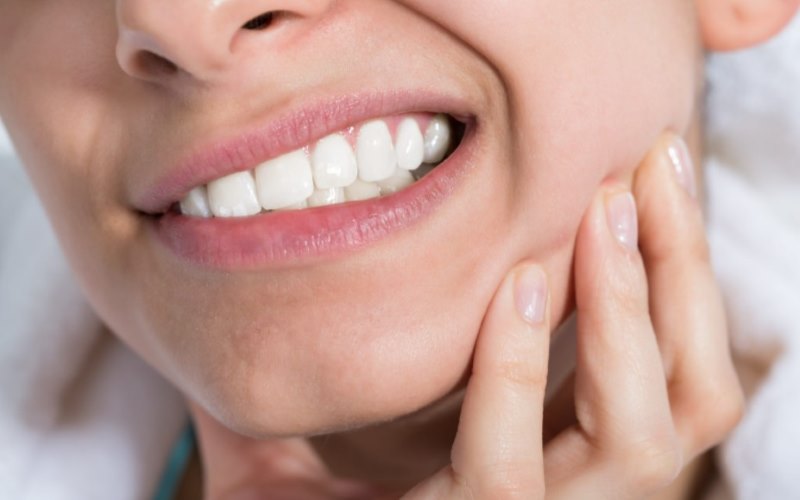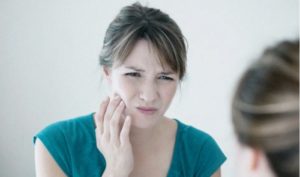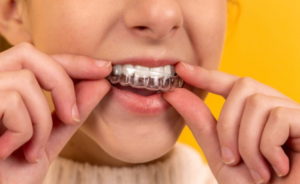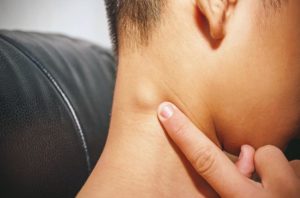If you often wake up with a radiating headache, sore jaw, and pain and tenderness around your ear and sides of your face, then you might be unknowingly clenching your jaw as you sleep. Also known as bruxism, jaw clenching and teeth grinding is pretty common, most people do it from time to time. It is often associated with anxiety and stress. Long term bruxism however, can lead to a long list of oral and health complications. If you suffer from these painful symptoms, then it is time for you to know how to stop clenching your jaw and grinding your teeth.
But why do people clench their jaws in the first place?
Bruxism
Bruxism is the general term used to describe teeth grinding and jaw clenching, and it often occurs during sleep (also called nocturnal or sleep bruxism). Some may also clench their jaw and grind their teeth while awake (awake bruxism). Although bruxism is associated with anxiety and stress, there are other reasons that could contribute to this bad habit such as an abnormal bite and crooked teeth. Sleep disorders such as sleep apnea could also lead to bruxism.
Other symptoms of bruxism include:
- Headaches, especially in the morning
- Soreness on jaw joint and facial muscles
- Flattened back teeth (teeth with small “pot holes” in them)
- Tooth sensitivity, damaged teeth, etc.
Temporomandibular Joint Disorder (TMJ or TMD)
The joint that connects your lower jaw to your skull (temporal bone) is called the temporomandibular joint. Excessive chewing, chewing hard food, jaw clenching, and teeth grinding can cause stress and wear and tear to this joint that results in throbbing pain and tenderness around the side of the face, near the ear, and the jaw area.
TMJ is pretty common. The National Institute of Dental and Craniofacial Research estimated that there are more than 10 million people in the United States, both men and women, who suffer from this disorder.
TMJ can also be caused by the following:
Physical injury and trauma to the jaw
- Autoimmune disease
- Infection or inflammation
Symptoms of TMJ can vary from cause and severity, including:
- Headaches
- Pain and tenderness on the jaw, side of the face, neck, and ear area
- Clicking or popping sound when opening the mouth for speaking, yawning, or eating
- Difficulty opening the mouth, pain when chewing
Stress and Anxiety
As said earlier, jaw clenching and teeth grinding are often linked to anxiety and stress. This is because people often grind their teeth and clench their jaw (bruxism) when feeling stressed, be it during daytime or during sleep. Overtime, this habit causes wear and tear to the joint and the facial muscles tighten up. Some may even develop oral problems such as cracks and crooked teeth, or even loss of teeth.
Excessive chewing
This is quite a no-brainer – excessive chewing of hard food such as hard and chewy meat, chewing gum for a long time, biting on ice cubes and pencil, etc., can lead to stress and wear and tear of the jaw joint.
Tetanus
Clostridium tetani bacteria cause tetanus, a bacterial infection that forces the muscles to contract, especially the muscles in the neck and jaw. Depending on the severity of the infection, tetanus can limit one’s ability to open their mouth, speak, and swallow food.
Fortunately, there are vaccines that can help prevent the infection.
Rheumatoid arthritis
This autoimmune inflammatory disorder affects muscles and joints throughout the body, including the TMJ. TMJ inflammation can make opening of the mouth to speak, eat, and yawn painful and may cause further damage to the joint and its surrounding tissues. In severe cases, it can even lead to bone loss in the jaw. Other symptoms of rheumatoid arthritis include:
- Inflammation, stiffness, joint pain
- Tightness and sore feeling in the jaw joint
- Bumps under the skin of the joint
- Fever
How to stop clenching your jaw and grinding teeth
Learn exercises for the jaw and facial muscles
You can start by relaxing, stretching, and exercising your jaw.
Manual jaw opening – Warm up by opening and closing your mouth several times. Then, place your index, middle, and ring finger of either left or right hand on top of your bottom set of teeth to slowly pull the jaw down. Pull until you feel slight discomfort on the side of your jaw.
Hold this position for 30 to 45 seconds before releasing your jaw back to the starting position.
Repeat this stretch and work your way to 10 to 12 repetitions.
Jaw joint stretch – To relieve tightness from your jaw and neck areas, you need to learn to relax and stretch the jaw.
Relax your jaw by putting the tip of your tongue behind your upper front teeth. Open your mouth slightly to move your lower teeth from your upper teeth.
Smile stretch – Face the mirror and make your widest smile. Make sure you don’t feel pain or tightness while smiling. Open your mouth slightly (about 5 cm) and inhale deeply through your mouth. Exhale to let the smile go.
Repeat this stretch ten times to relieve stress around the jaw, neck, and facial muscles.
Change your diet
Eat softer foods such as avocado, porridge, smoothies, and yogurt. Stay away from hard-to-chew food such as chewy meat.
Wear a night guard
Also known as a bite splint, a night guard looks similar to a mouth guard used in many sporting activities. But instead of providing jaw support to brace impact, bite splints or night guards are specifically designed to provide a cushion between teeth and protect the teeth and jaw from damage due to constant jaw clenching and teeth grinding.
It is best to get the prescribed mouth guard from your dentist, as they are fitted specifically to the shape of your mouth and teeth.
Massage your jaw
Reduce muscle tightness and increase blood flow around your jaw by massaging your jaw muscles. You can do this by opening your mouth slightly and rubbing your muscles using your index and middle fingers in a circular motion. You can do this multiple times a day. Massage your ears as well.
Reduce stress
If your daily life is plagued with stress and anxiety, then it’s time to distance yourself from the things that cause stress and contributes to your anxiety. You can talk to your doctor for the best course of treatment. You may attend counseling, start an exercise program, or find a hobby. In some cases, you may be advised to see a physical therapist or take muscle relaxants to minimize jaw tightness caused by teeth grinding or jaw clenching.


























